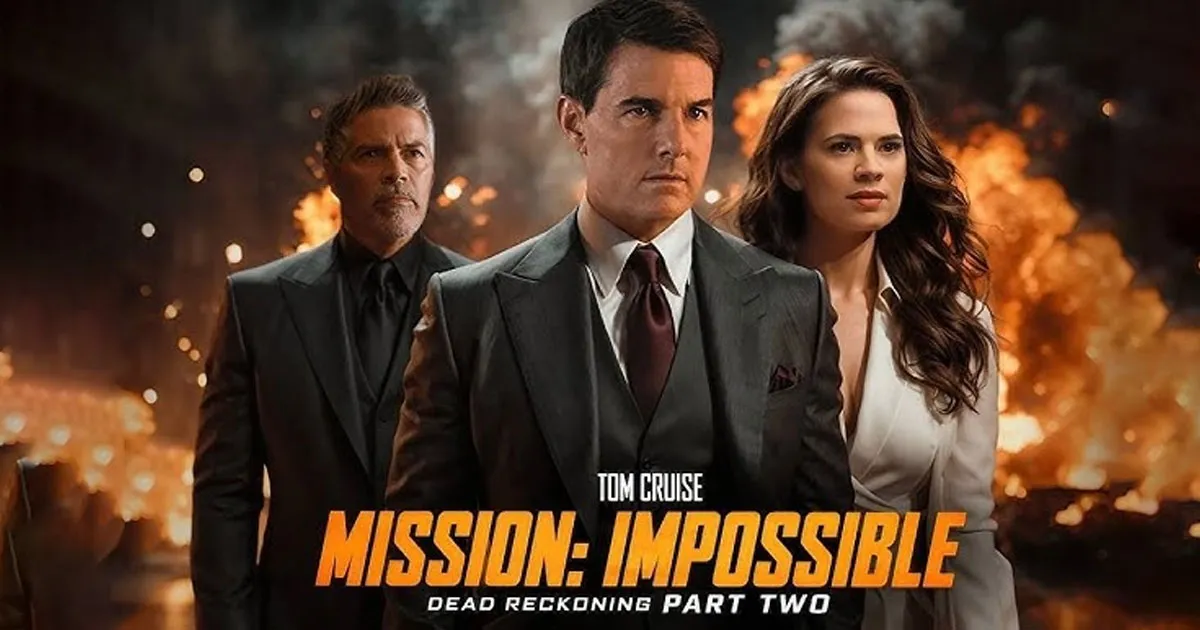Nearly 25 years after that iconic “two weeks’ notice” resignation, Two Weeks Notice 2 arrives with a warmth and wit that honors its legacy—while exploring what happens when ambition, romance, and identity meet midlife crossroads. Returning director Nicole Holofcener delivers a sequel that balances nostalgia with fresh emotional stakes, reinforced by the undeniable chemistry of Sandra Bullock and Hugh Grant.
The film opens in present-day New York City, where Lucy Kelson (Sandra Bullock) is now a celebrated environmental lawyer and NGO founder, approaching 50 with unshakable conviction—though her personal life is largely in stasis. Across town, George Wade (Hugh Grant) has taken on the role of CEO at a global idealism fund, supporting green initiatives around the world. He’s just as charming and erratic as ever, but marriage and fatherhood have softened his once relentless business instincts.
Their paths cross again at a charity gala featuring Lucy’s nonprofit. The reunion is warm but uneasy—George is full of apologies and grand ideas to restore Lucy to the organization he created for her, while Lucy politely declines, wishing to remain independent. George, bruised, offers Lucy two weeks as a “consultant”—and thus, the sequel’s journey begins.
The heart of the film lies in Lucy agreeing to two weeks of advisory work—but for her own rules. She will review and critique George’s organization, present an environmental blueprint, and vanishes again. George, eager and self-aware, accepts.
What follows is the joyful but complicated rediscovery of the duo’s rhythm. Lucy pushes George’s eco-fund to be more than window dressing, challenging core assumptions and poking fun at corporate posturing. George’s dry humor warms Lucy’s defenses, while her idealism forces him to revisit his more superficial tendencies.
Their “two weeks” collapse into two months—filled with boardroom battles, heartfelt homespun dinners at George’s stylish Manhattan loft, and flashbacks to Lucy’s earlier “two weeks notice” resignation. The past colors every moment, adding pits of regret and subliminal longing. The chemistry crackles still—particularly around scenes like a late‑night brainstorming session interrupted by a sudden power outage, where George jokingly demands to hire Lucy full-time (again) and Lucy retorts that she doesn’t belong behind his desk.
Much like its predecessor, Two Weeks Notice 2 thrives on the contrast between Lucy’s moral clarity and George’s charismatic flexibility. Yet this time, they’re not young professionals—they’re adults with histories, children, and responsibilities.

Lucy must confront that her own nonprofit is exhausting her, and her personal sacrifices have grown as layered as George’s. She wrestles with how to maintain autonomy while allowing space for love. George, on the other hand, learns that leaning on someone—emotionally or professionally—is not weakness.
Idealism vs. Reality
The sequel deftly explores environmental challenges: greenwashing at corporate levels, NGO burnout, and political deadlock. Lucy, once a grassroots warrior, must navigate board politics and executive power while staying true to her values. George’s fund becomes a parabola for compromise—teaching him humility as he learns from Lucy.
Second-Chance Love
This is not a tale of rekindled passion—they never truly lost that. Instead, it shows how love can be rebuilt on new terms: trust, forgiveness, shared purpose, and mutual growth. For a generation rediscovering long-term love in midlife, this hits emotionally rich ground.
-
Sandra Bullock brings Lucy more depth than in the original—now more world-weary, driven by purpose, and prone to occasional loneliness. Her comedic timing, crisp dialogue, and emotional beats still shine, particularly in a scene where she tearfully confronts George about past assumptions he made about her priorities.
-
Hugh Grant, older and a touch more restrained, finds balance between old charm and maturity. He’s still capable of playful one-liners but now carries emotional weight—apologizing to Lucy, wrestling with fatherhood, and admitting his own insecurities.
-
Supporting Cast enriches the world: a stiff-but-caring board of trustees, Lucy’s earnest staff, and George’s preteen daughter, Emma, who serves as a grounding force, demanding authenticity from both adults.

-
Emotional authenticity: Unlike many romantic comedies aimed at nostalgia, this one actually grapples with the complexities of life after fame and career peaks.
-
Sharp humor with substance: Conversations about donor embarrassment, tax loopholes, and activism-fatigue feel fresh and real.
-
Natural pacing: The romance unfolds organically—no contrived weekend getaways or sudden epiphanies.
-
A slightly overstuffed middle with too many sideplots—like a secondary romance and boardroom revolt—that dilute the energy.
-
George’s transformation sometimes edges toward ideal arc clichés, especially in the final act where his “big speech” about grassroots sacrifice feels predictable.
Two Weeks Notice 2 sits between retro‑romantic comedy and midlife relationship drama, sharing themes with films like Something’s Gotta Give and The Intern. Yet unlike the usual crowd, it centers idealism and social purpose—not money or career climbing—as primary stakes.
Unlike nostalgic retreads that can feel stale, this sequel feels alive because it is earnest. It doesn’t ignore what 20+ years have done to its characters. It doesn’t ask for suspended disbelief—it asks for empathy.


-1751511488-q80.webp)
-1751509672-q80.webp)
